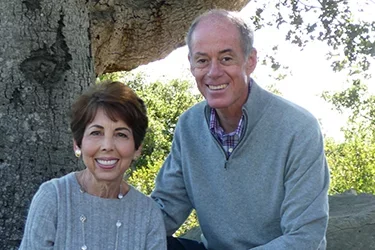Spotlights
Immunology, Inflammation, Infection, and Transplantation
Donor Spotlight

Connie Frank and Evan Thompson have made a generous contribution to establishing the Connie Frank and Evan Thompson Program for Restorative Transplantation Research, under the direction of Dr. Kodi Azari (FEL ’04) in the Department of Surgery. The David Geffen School of Medicine at UCLA has initiated research themes to drive advancements and this gift will be used to implement research awards in the Immunity/Inflammation/Infection/Transplantation research theme. The greatest challenge the organ transplant field faces is rejection, and this funding will harness the expertise of multidisciplinary teams of UCLA scientists as they aim to redefine transplant immunology and improve treatments for patients who suffer from conventionally unreconstructable limb, tissue, and nerve injuries.